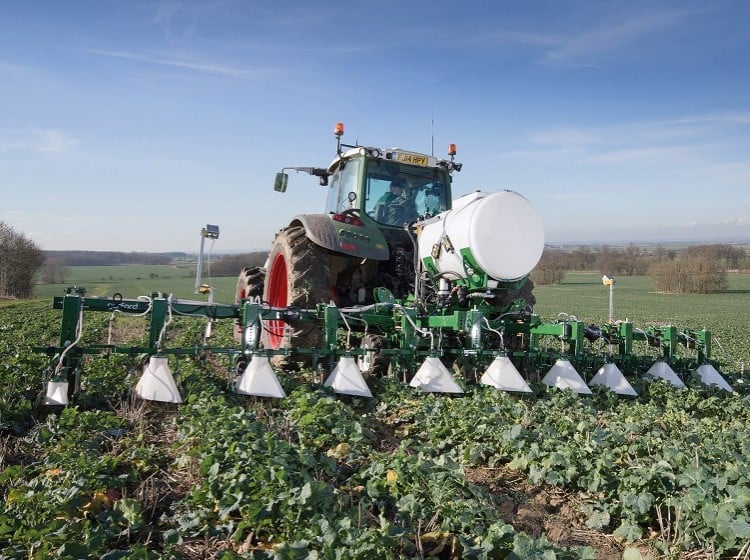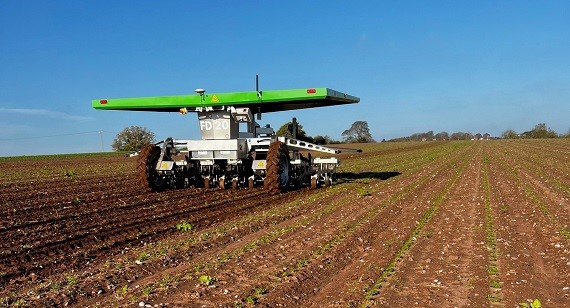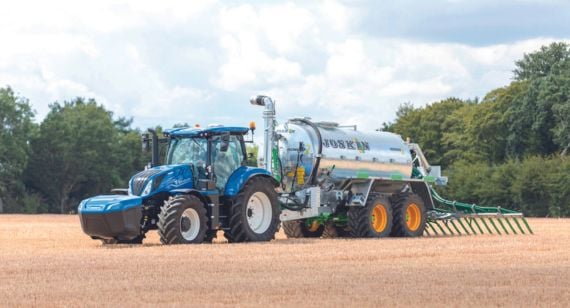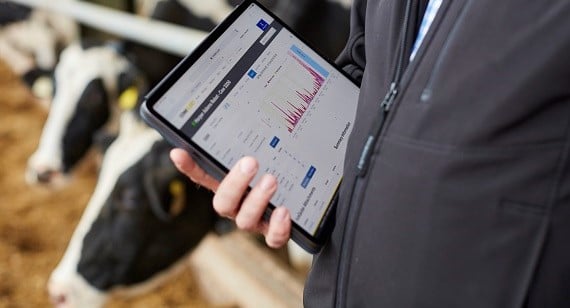Labour intensive fruit farms ripe for robotic aid
We are seeing increasing usage of on-farm robotics as farmers seek better, more efficient ways to tackle tasks such as planting, weeding and harvesting.
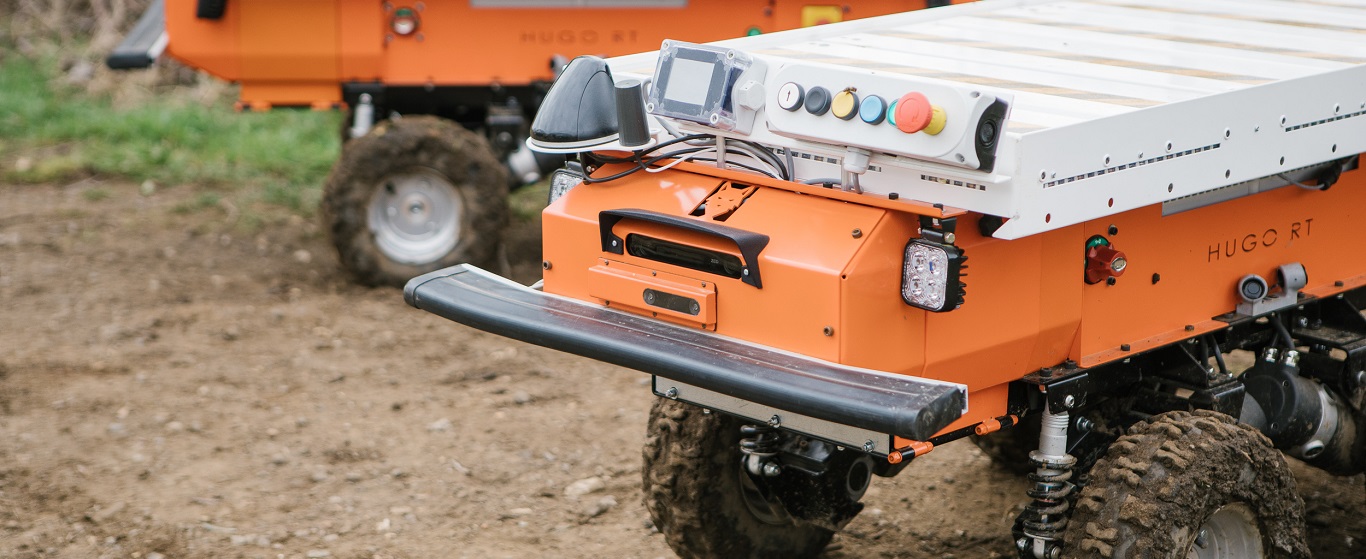
A big motivation for investing in such machines is to fill gaps in the workforce at a time when labour is hard to come by and expensive.
This is especially true for horticulture farms, including fruit growers, such as Lutton Farm; Located on the border between Cambridgeshire and Northamptonshire, which grows blackberries, strawberries, raspberries and blueberries.
Lutton Farm is among early adopters of a robot that supports pickers by transporting empty trays to them, collecting picked produce from pickers, and delivering it to any collection point that is in transit or static.
The Hugo RT robot used by Lutton Farm is made and designed by Fox Robotics, based in Farnham, Surrey. “Our main objective is to provide farms with a smart and simple solution to their logistics and transportation needs.” says Alejandra Acevedo, Business Development Manager at the company. “Our robot has been designed with safety as its top priority. The robot is Intelligent enough to recognise humans and work with them ,” she adds.
The robots, which are electric and work in fleets. It can carry up to 250 kg or tow up to 500 kg. They can also gather data to help farmers improve productivity. This, says Alejandra, includes “who the picker is, how much they’ve picked, and frequency of picking, the location, and in time yield could be predicted.
She adds: “There are other robots available that follow a predetermined route, but ours can navigate using AI and identify the best route to take, over any terrain, in all types of weather”.
Fox Robotics is still trialling its robots, at Lutton Farm and other farms across the UK, and improving them based on farmer feedback.
Lutton Farm, which employs up to 250 members of staff during the busy picking season, says: “In many food scenarios around the world harvest labour is rapidly becoming the limiting factor to effective production and supplying a growing market. I can only see this as an increasing pressure point in the future and the demand for products from companies such as Fox Robotics will only increase.”
In the fiercely competitive global marketplace, Lutton Farm is among a growing number of farms to embrace new technologies in order to test their viability and help their businesses become more resilient and sustainable in the long-term. But it can be challenging to decide which technology is the best option for your farm. We’re here to help farmers – no matter what size or type of farm they operate – to support decisions about which technologies may be best in providing efficiencies for their farm.
If you are looking at new technologies to benefit your farming enterprise it can help to start with the following:
- Review your farm’s long-term strategy: this will help you identify how technology and the use of detailed data could help you achieve your goals.
- Consider your supply chain: explore technology systems which integrate not only with your farm’s activities but also your supply chain.
- Keep up to date: follow new developments in technology and ensure you have the management skills to adopt technology and successfully master the opportunities.
- Consider working with other farms: cooperation can help achieve economies of scale both in the use of new technology and the adoption of farmer-friendly supply chains.
- Understand the potential risks that new technology can cause: this includes any potential knock-on effects and the solutions to mitigate these.
We deliver more than insurance and work closely with scientists, agricultural colleges and technology companies to help our customers make the right choices to farm sustainably, profitably and safely.
If you’re thinking of adopting new technology on your farm, we’d encourage you to speak to your local NFU Mutual agency office to ensure you have the right cover in place.
